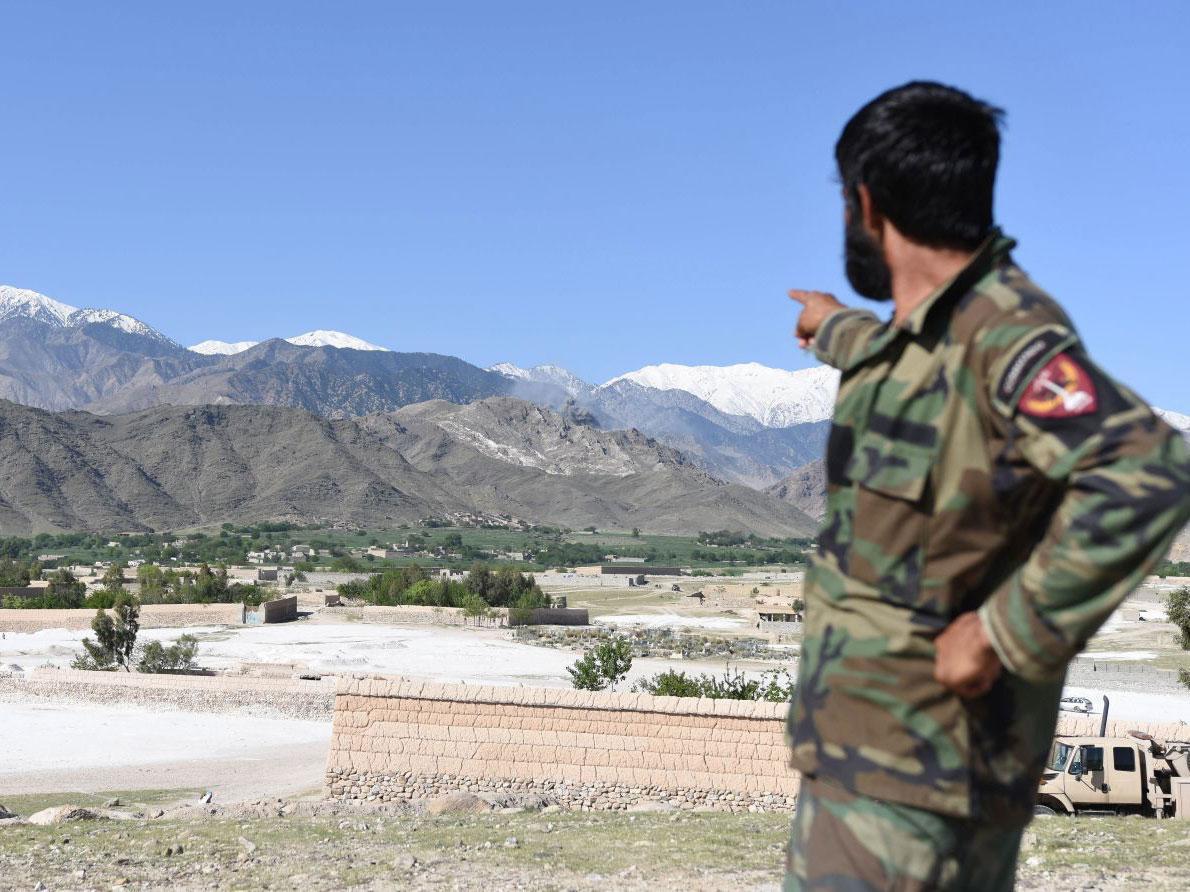The ‘mother of all bombs’ is no solution to Isis, the mother of all problems
Tackling Isis at source and on the ground, in Afghanistan as in Syria and Iraq, is likely to be the only effective strategy

The dropping on the Afghan mountains of the biggest non-nuclear bomb ever used reverberates with the echoes of failed American military campaigns in the past. The deployment of the Massive Ordnance Air Blast (Moab) bomb seems to have been designed to do two things.
One was to destroy a network of tunnels and caves used by Isis in Afghanistan, the new entrant competing with the Taliban for the Islamist franchise there. In this it resembles the attempt by the US to shut down from the air the tunnels and forest paths used by the North Vietnamese to supply their fighters in the south. That led to the horrors of napalm, used to strip areas of vegetation, which had little effect on the Vietcong supply routes.
The other purpose of dropping what has been nicknamed the “mother of all bombs” was the warfare of sending a message. It was designed to demonstrate to Isis and to the Taliban the power of US weaponry and the firmness of the US backing for the government of Ashraf Ghani. In this respect, it resembles the policy of “shock and awe” with which the US prepared for the invasion of Iraq. That may have succeeded in intimidating Iraqi forces, but they were unlikely to offer much resistance in any case, and the bombardment did nothing to avert the disaster of sectarian violence into which Iraq quickly slipped after the invasion.
Neither of these precedents is a happy one. That is because neither rationale for the bombing does much to tackle Isis at source and on the ground, which is likely to be the only effective strategy. If Isis has the support of parts of the Afghan population, then the destruction of one hiding place is only a temporary setback. And if that support is built on Islamist propaganda about the US as a mighty power bent on killing Muslims then the “message” sent by the bomb may be a counter-productive one.
What matters to western policy on Afghanistan is the balance of power between the Kabul government, the Taliban, Isis and whatever the Pakistani military is up to over the border. If the Afghan government requested US support against Isis in Nangarhar province, it must believe that the strike will strengthen it, but the opposition to the bombing from former President Hamid Karzai suggests that there other possible readings of Afghanistan’s true interests.
Indeed, it is possible that dropping the bomb was intended by the Pentagon to bounce Donald Trump into underwriting the US’s military commitment in Afghanistan. The President was vague when asked if he had authorised the bombing, but praised it as “another very, very successful mission”.
If, however, President Trump is now signed up to a policy of preventing Afghanistan becoming a base for Isis, as it once was for al-Qaeda, it is not clear that spectacular shows of force are the most effective way of pursuing it. The US and its allies need a strategy for defeating the ideology of Islamism in Afghanistan as much as in Syria and Iraq, which needs to start from the religious and national identities of local populations – something the US failed to do in Vietnam.
President Trump’s sudden conversion from the isolationism of his campaign to intervention in Syria and Afghanistan does not feel like a considered response to the threat from Isis. The strike against the Syrian regime could be justified in that it may have made Bashar al-Assad less likely to use chemical weapons again, but it was not a strategy. No one has any idea who might replace Mr Assad, or whether a weaker Assad regime means a stronger Isis – just as no one has any idea whether hitting Isis in Afghanistan strengthens the Taliban.
The one thing we can be sure of is that no lasting solution to the problem of Isis is going to come simply through American bombs.

Join our commenting forum
Join thought-provoking conversations, follow other Independent readers and see their replies